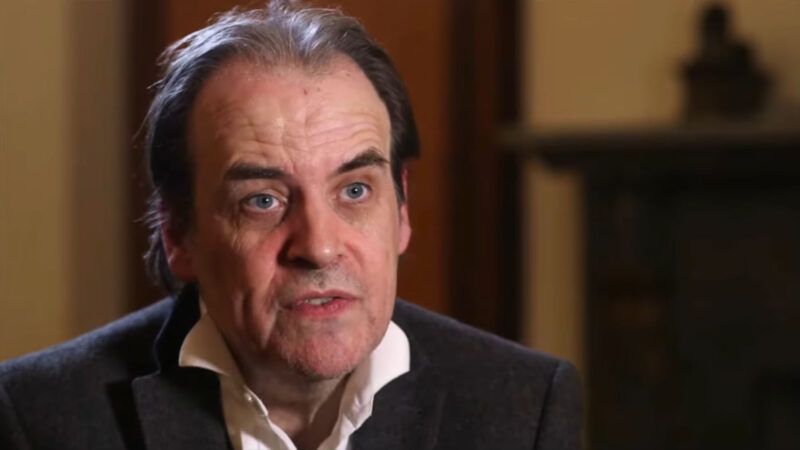I’ve always believed that teaching is more than just textbooks. It’s about bringing your whole self to the classroom – your interests, your passions, your stories.
That’s what connects with students and gets them excited about learning.
It’s like when I share a bit about my life outside of school, my students see me differently.
They’re more curious and more engaged.
That’s why I love to bring in ideas from books that have touched me personally.
Here are five that have made a big impact on me and my teaching.
1. Wooden: A Lifetime of Observations and Reflections On and Off the Court
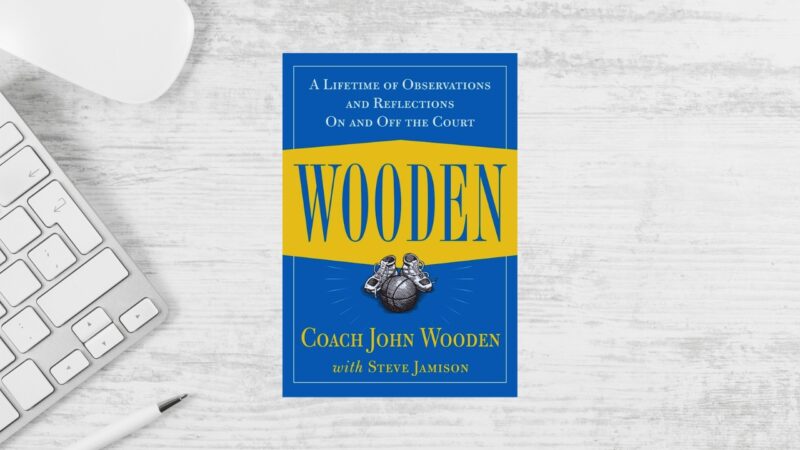
In honest and telling passages about virtually every aspect of life, Coach shares his philosophy on family, achievement, success, and excellence. Raised on a small farm in south-central Indiana, he offers lessons and wisdom learned throughout his career at UCLA, and life as a dedicated husband, father, and teacher.
These lessons, along with personal letters from Bill Walton, Denny Crum, Kareem Abdul-Jabbar, and Bob Costas, among others, have made Wooden: A Lifetime of Observations and Reflections on and off the Court an inspirational classic.
John Wooden’s coaching success is often attributed to his straightforward wisdom and strong values. At UCLA, he would share insights from the Bible and poetry, not just basketball strategies.
His players would say he taught them life lessons, not just the game. This highlights an important teaching philosophy: our priority is to educate students as individuals, beyond just following the curriculum.
2. The Life-Changing Magic of Tidying Up: The Japanese Art of Decluttering and Organizing
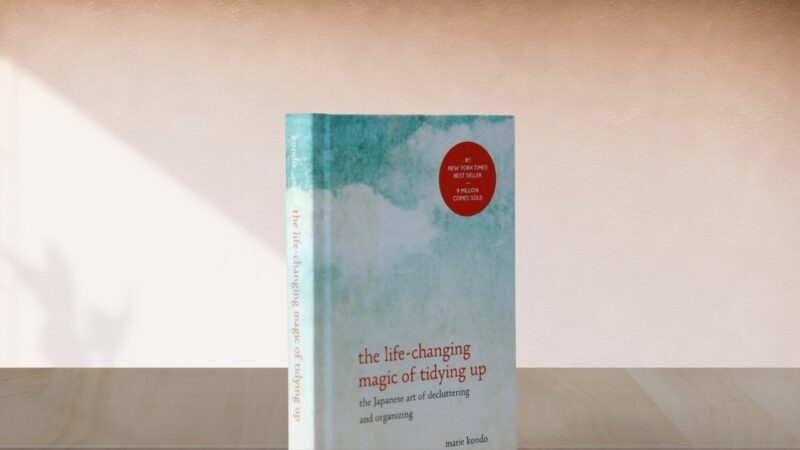
Even if you try hard to keep your classroom tidy, do you find that papers still pile up and supplies get messy?
Marie Kondo, a Japanese organizing expert, says that if you declutter and organize your space just right, you won’t have to do it over and over.
Her tips for homes can also work for classrooms. Unlike other methods that suggest cleaning bit by bit, which can feel never-ending, her approach might save you from constantly dealing with clutter.
The KonMari Method, with its revolutionary category-by-category system, leads to lasting results. In fact, none of Kondo’s clients have lapsed (and she still has a three-month waiting list).
This international bestseller from Tokyo offers detailed advice on how to figure out which things in your home make you happy and which don’t. By following this guide, you can declutter your space and discover the wonderful feeling of a clean home.
It’s not just about tidiness – it’s about creating a peaceful and inspiring atmosphere where you can feel calm and motivated.
Why it Will Transform Your Teaching: The Irish writer George Bernard Shaw once said, “To be in hell is to drift; to be in heaven is to steer.” Students need clarity, organization, and certainty from the learning environments they inhabit, otherwise their minds will drift away into unchartered waters.
They need to be steered to focus and stay on task, and a clean, tidy, and organized room is an important step to achieve this. Marie Kondo shows you how.
3. Meditations (Penguin Great Ideas)
Throughout history, some books have changed the world. They have transformed the way we see ourselves, and each other. They have inspired debate, dissent, war, and revolution. They have enlightened, outraged, provoked, and comforted. They have enriched lives – and destroyed them.
Few ancient works have been as influential as the Meditations of Marcus Aurelius, philosopher and emperor of Rome (A.D. 161–180). A series of spiritual exercises filled with wisdom, practical guidance, and a profound understanding of human behavior, it remains one of the greatest works of spiritual and ethical reflection ever written.
Marcus Aurelius’ “Meditations” offers timeless wisdom on life, overcoming challenges, and human interactions. Its personal tone and practical advice have made it essential for leaders and thinkers, as well as relatable for everyday readers. It’s a guide for balancing leadership responsibilities with personal values and inner peace, remaining just as applicable today as when it was written two millennia ago.
Marcus Aurelius’ “Meditations” offers valuable insights for teaching.
It suggests that success shouldn’t make us arrogant, nor should failure erode our self-worth. In the classroom, difficult students shouldn’t be seen as barriers to learning. Instead, as Aurelius points out, challenges can propel us forward.
He reminds us, along with so many other wonderful words of wisdom, that those students who stand in the way are the ones who show us how we can be better teachers. That is because a teacher’s worth is not determined by the engagement of the best students in class, but by what we do to draw in the troubled ones.
4. Start with Why: How Great Leaders Inspire Everyone to Take Action
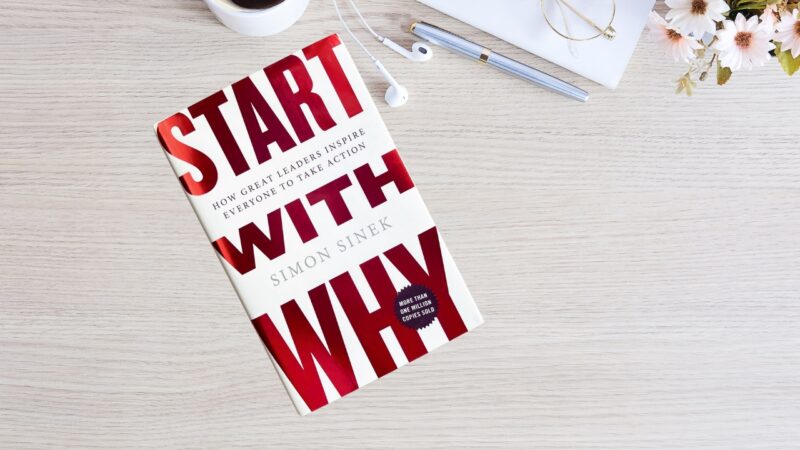
Simon Sinek’s concept of The Golden Circle highlights that the most influential leaders and organizations operate differently from the rest.
They begin with ‘WHY’ – the purpose, belief, or cause behind their actions.
The ‘WHY’ is not about profit, which is a result, but the core reason for an organization’s existence and the motivation behind customer loyalty and action.
Organizations often articulate ‘WHAT’ they do and sometimes ‘HOW’ they do it, but the ‘WHY’ is less frequently communicated.
Yet, starting with ‘WHY’ is what inspires and attracts followers and customers – not through manipulation but through shared beliefs and inspiration.
In terms of teaching, the content we deliver is familiar, but the success of our instruction hinges on our ability to convey its purpose. Sinek illustrates that exceptional leaders and innovators have a common starting point: they begin with the ‘why.’
5. The Promise of a Pencil: How an Ordinary Person Can Create Extraordinary Change
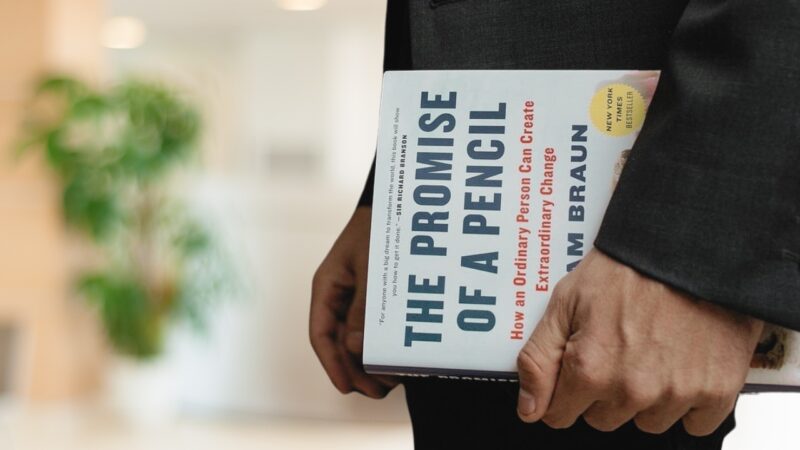
Imagine a young guy who, with just $25 in his pocket, managed to create over 200 schools worldwide. It’s a heartwarming tale that shows us how anyone can achieve big things and live a meaningful life.
Meet Adam Braun. At sixteen, he was already on the fast track to a high-flying career in finance. But everything changed when he met a boy in India. This boy wasn’t asking for money or toys; he just wanted a pencil.
That simple wish sparked something big in Adam. He traveled across many countries, and eventually, he traded his fancy job to start ‘Pencils of Promise’ with his $25 savings. Now, that organization has built more than 200 schools!
“The Promise of a Pencil” is Adam’s story. It’s a book filled with adventures and practical advice, showing us how to make our dreams come true, step by step. From rubbing shoulders with big-shot executives to chatting with local leaders and celebrities, Adam shares his journey and the lessons he learned. It’s a book packed with exciting tales and tips that can help you write your own success story.
Adam Braun’s story is an inspiring example of how a single idea, fueled by determination and passion, can grow beyond its initial spark and profoundly touch lives.
It serves as a powerful reminder for teachers: those little ideas that sprout in the classroom, like starting a fundraiser, standing up against bullying, or bringing textbook lessons to life, can blossom into something impactful.


